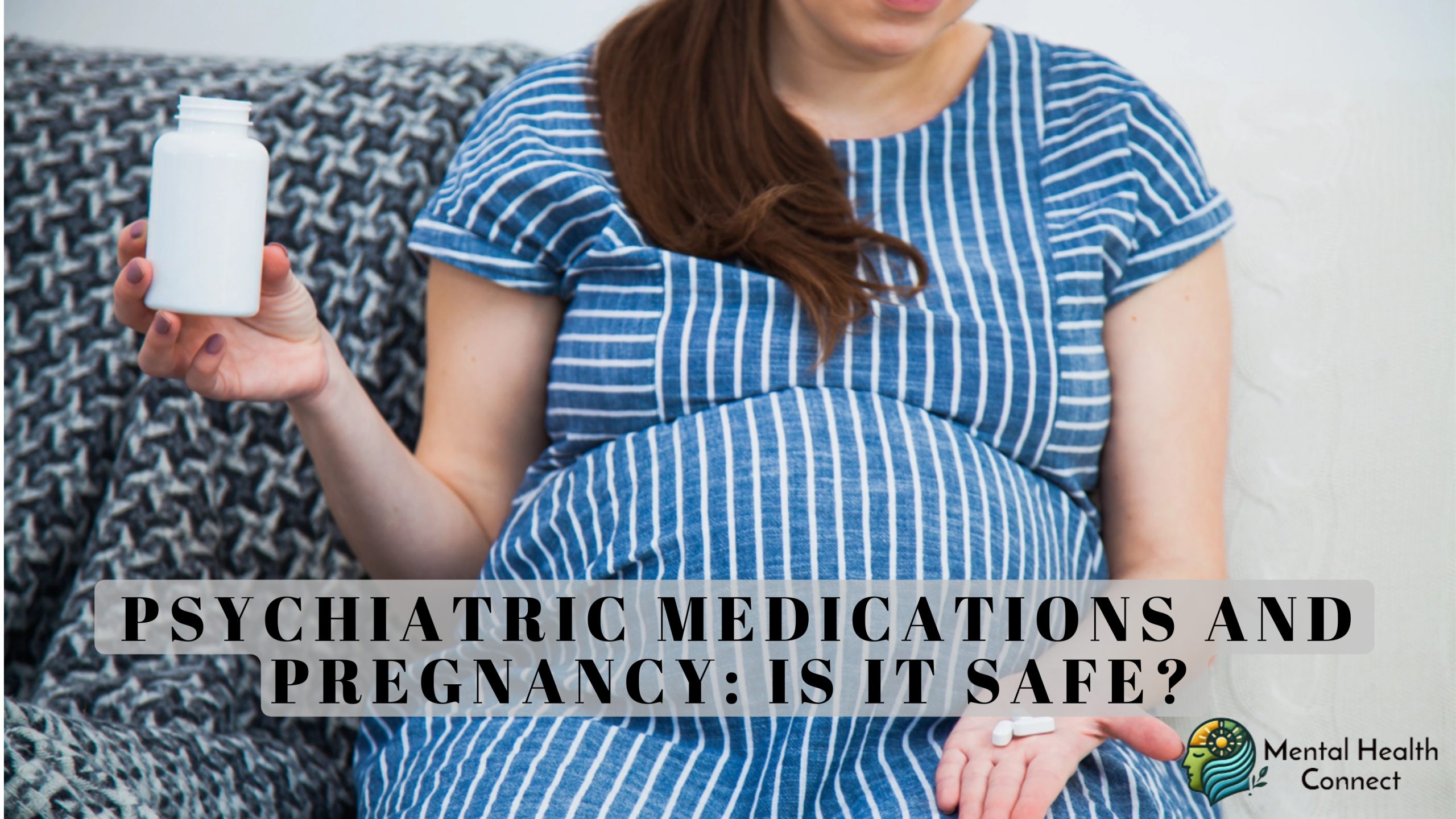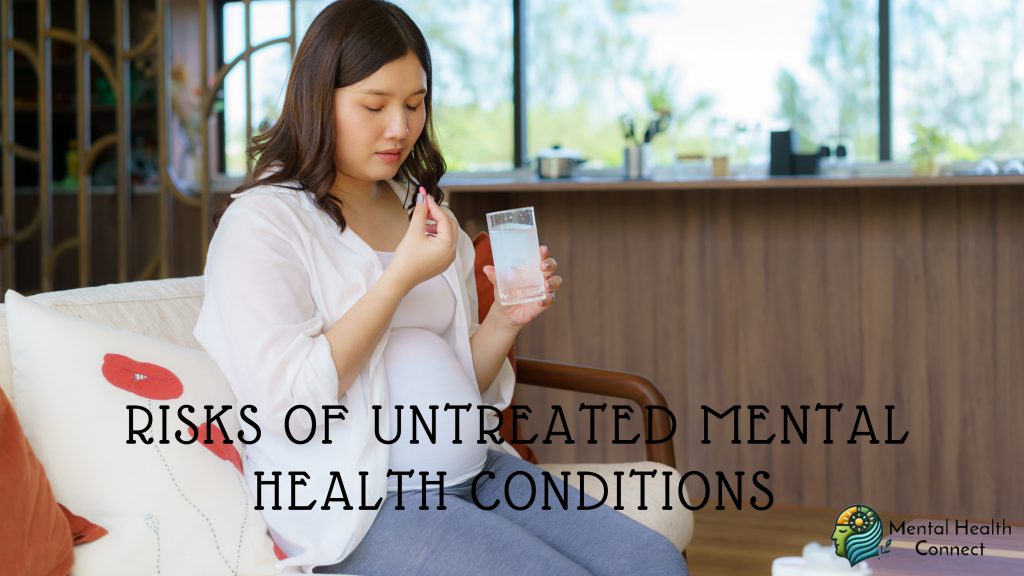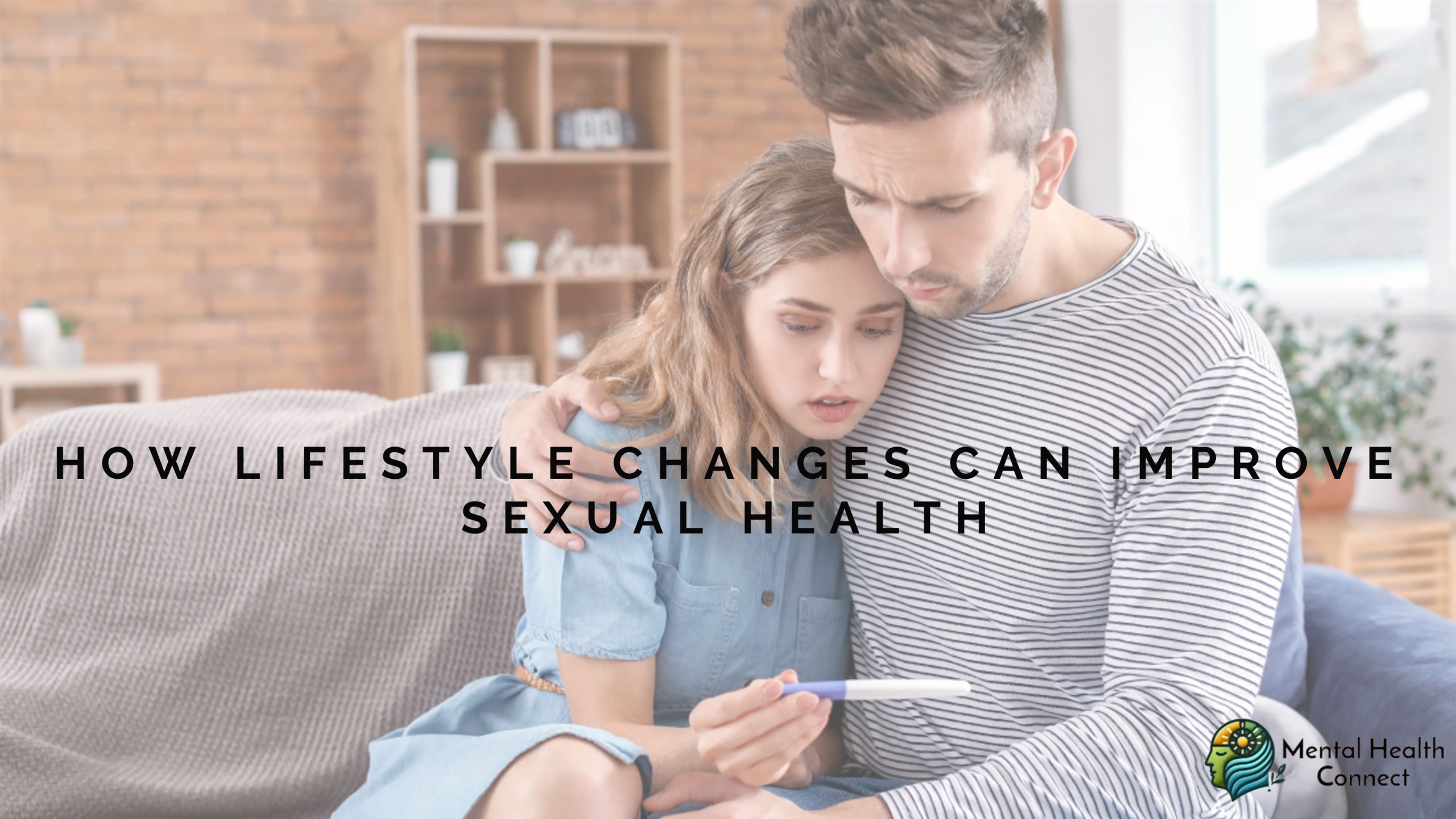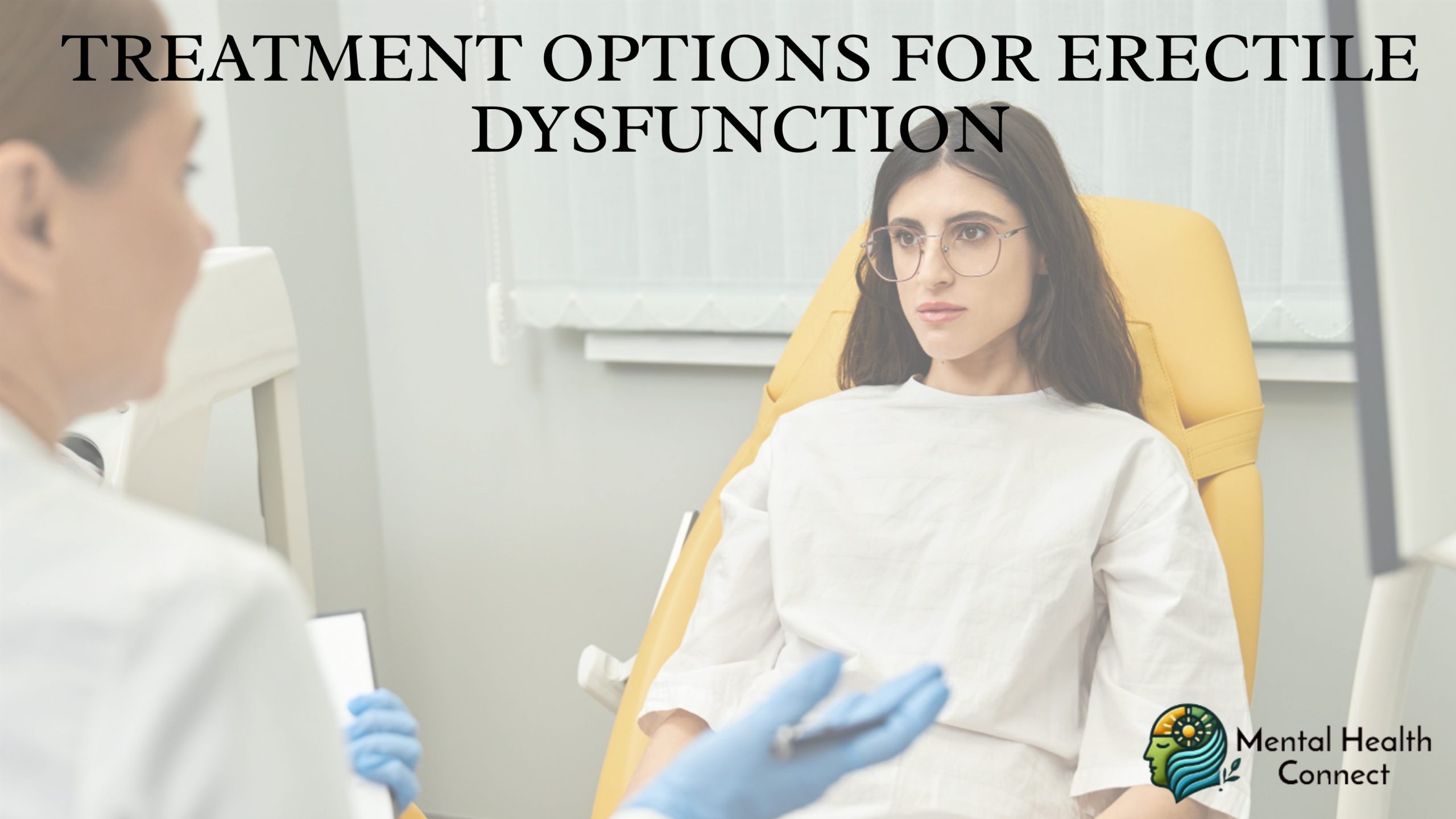Psychiatric Medications and Pregnancy: Is It Safe?

For many expectant mothers managing mental health conditions, the question of medication safety during pregnancy creates significant anxiety. Balancing psychiatric well-being with potential risks to fetal development requires careful consideration of multiple factors. This guide explores the complex decision-making process around psychiatric medications during pregnancy.
Understanding the Dilemma
Pregnancy presents a unique challenge for women with mental health conditions. Untreated psychiatric disorders can themselves pose risks to both mother and baby, yet concerns about medication effects on fetal development are valid. This isn’t simply a matter of medication versus no medication it’s about finding the safest path through a challenging time.
Risks of Untreated Mental Health Conditions

Before discussing medication risks, it’s important to acknowledge that untreated psychiatric conditions during pregnancy can lead to:
- Poor prenatal care and nutrition
- Increased substance use
- Higher risk of preterm birth
- Lower birth weight
- Postpartum depression or psychosis
- Difficulties with mother-infant bonding
Common Psychiatric Medications and Pregnancy Considerations

Antidepressants
SSRIs (like fluoxetine and sertraline) are among the most studied psychiatric medications during pregnancy. While no psychiatric medication is considered completely risk-free, many SSRIs have relatively reassuring safety profiles. Some considerations include:
- Potential small increased risk of certain birth defects with some SSRIs
- Possible increased risk of persistent pulmonary hypertension of the newborn (PPHN)
- Potential for neonatal adaptation syndrome (temporary symptoms in newborns)
Mood Stabilizers
Medications like lithium and certain anticonvulsants require particularly careful consideration:
- Lithium carries some risk of cardiac malformations when used in the first trimester
- Valproate has significant risks of neural tube defects and is generally avoided
- Lamotrigine has a more favorable pregnancy profile among mood stabilizers
Antipsychotics
The data on antipsychotics during pregnancy is still developing:
- Typical antipsychotics have longer safety records during pregnancy
- Atypical antipsychotics show mixed evidence regarding metabolic effects
- Individual medication selection should be based on prior response and risk profiles
Guidelines for Decision-Making
When considering psychiatric medication during pregnancy, follow these guidelines:
- Pre-pregnancy planning: Ideally, medication adjustments should occur before conception
- Individual risk assessment: Consider your specific mental health condition severity and history
- Medication selection: Choose medications with better-established safety profiles when possible
- Lowest effective dose: Use the minimum dose that maintains stability
- Avoid polypharmacy: Minimize the number of medications when possible
- Regular monitoring: Increased prenatal visits and potentially specialized care
- Postpartum planning: Prepare for potential medication adjustments after delivery
Collaborative Care Approach

The best outcomes occur with collaborative care involving:
- Psychiatric specialists with pregnancy expertise
- Obstetricians familiar with mental health conditions
- Primary care providers
- Mental health therapists
- Support systems including family members
Non-Medication Approaches
While not always sufficient alone, non-medication approaches can be valuable components of treatment:
- Psychotherapy (particularly cognitive-behavioral therapy)
- Light therapy for seasonal depression
- Stress reduction techniques
- Adequate sleep hygiene
- Social support optimization
- Exercise appropriate for pregnancy
Making Your Decision
Every woman’s situation is unique. The decision to continue, adjust, or discontinue psychiatric medication during pregnancy should consider:
- Severity of your mental health condition
- History of relapse when medication is discontinued
- Previous pregnancy experiences
- Available support systems
- Your personal values and preferences
When to Seek Help Immediately

Certain situations require immediate attention:
- Suicidal thoughts
- Inability to care for basic needs
- Psychotic symptoms
- Significant functional impairment
- Severe anxiety affecting daily functioning
Looking Forward
Planning for the postpartum period is crucial, as this represents a high-risk time for psychiatric complications. Discussion about medication adjustments after delivery, breastfeeding considerations, and support systems should begin during pregnancy.
The decision about psychiatric medication during pregnancy is complex and deeply personal. Working closely with healthcare providers who understand both mental health and pregnancy can help navigate this challenging terrain. Remember that maternal mental health is itself a crucial component of a healthy pregnancy, and finding the right balance of treatments is key to optimal outcomes for both mother and baby.
FAQ about Psychiatric Medications During Pregnancy
Are all psychiatric medications dangerous during pregnancy?
No, the risks vary widely between medications. Some have relatively reassuring safety profiles, while others carry significant risks. Individual assessment is essential.
Is it safer to stop all psychiatric medications when pregnant?
Not necessarily. Untreated mental health conditions can pose serious risks to both mother and baby. The decision should balance potential medication risks against the risks of untreated illness.
Can I breastfeed while taking psychiatric medication?
Many psychiatric medications are compatible with breastfeeding, though considerations differ from pregnancy. Discuss specific medications with your healthcare provider.
What if I discover I’m pregnant while on psychiatric medication?
Contact your healthcare providers immediately, but don’t abruptly stop medication without professional guidance, as this could trigger withdrawal or relapse. Are there natural alternatives that are completely safe?
Even natural remedies can carry risks during pregnancy. Always discuss supplements or alternative treatments with your healthcare provider before using them.
-
 How Lifestyle Changes Can Improve Sexual HealthApril 3, 2025
How Lifestyle Changes Can Improve Sexual HealthApril 3, 2025 -
 Treatment Options for Erectile DysfunctionApril 3, 2025
Treatment Options for Erectile DysfunctionApril 3, 2025

Leave a Reply